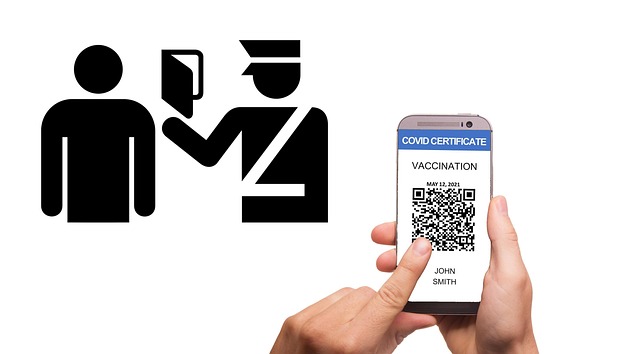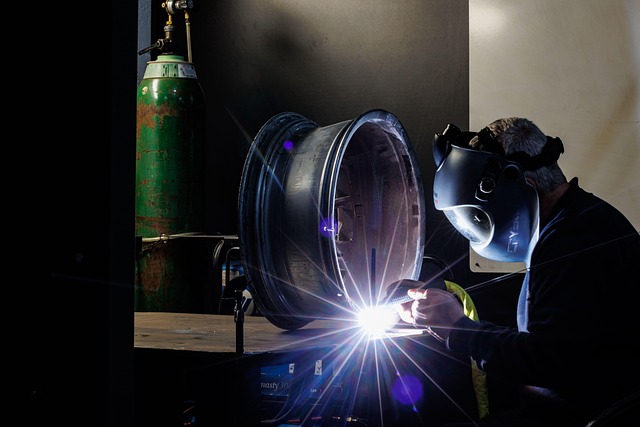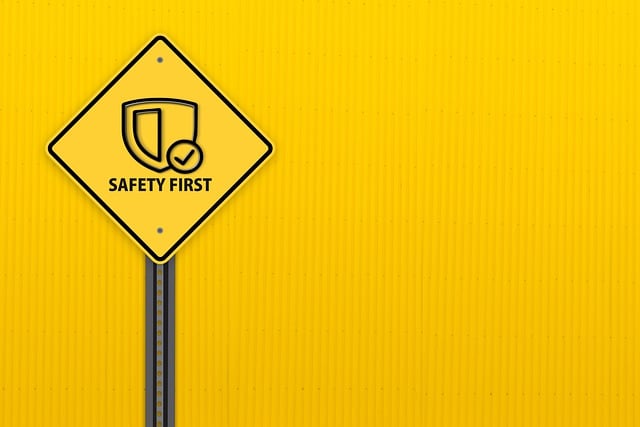Before a gas safety assessment, landlords must understand core requirements, including regular inspections and prompt repairs. Prepare by checking appliances, following manufacturer guidelines, using registered engineers, and understanding cylinder storage. Identify common hazards like leaky pipes and faulty installations to ensure a thorough inspection. Thorough preparation streamlines the process, avoids delays, and meets legal obligations for gas safety certificates.
Preparing for a gas safety assessment is crucial for ensuring a secure living or working environment. This comprehensive guide outlines essential steps, from understanding gas safety assessment requirements to familiarizing yourself with various aspects of gas systems. Learn how to inspect and maintain gas appliances, recognize common hazards, and prepare for inspection procedures to obtain your gas safety certificate effortlessly.
- Understand Gas Safety Assessment Requirements
- Inspect and Maintain Gas Appliances
- Familiarize Yourself with Gas Cylinders
- Know Common Gas Safety Hazards
- Prepare for Inspection and Testing Procedures
Understand Gas Safety Assessment Requirements

Understanding the core requirements of a gas safety assessment is pivotal before diving into the preparation process. This evaluation, often culminating in a gas safety certificate, isn’t merely a formality; it’s a crucial step to ensure your gas appliances are functioning safely and efficiently. For landlords, this becomes an even more critical aspect as part of their legal obligations, underscoring the importance of regular inspections and prompt action on any issues identified.
The assessment involves meticulous scrutiny of various elements including appliance installation, ventilation systems, and potential safety hazards. Staying proactive by familiarizing yourself with these standards is a valuable gas safety tip. Knowing what to expect during the inspection allows you to ensure your boiler repair (if necessary) aligns with current regulations, thereby facilitating a smoother process when it comes time to renew your gas safety certificate.
Inspect and Maintain Gas Appliances

Regularly inspecting and maintaining your gas appliances is an integral part of preparing for a gas safety assessment. It’s not just about ensuring they function correctly; it also plays a pivotal role in preventing potential hazards. Start by examining each appliance, including boilers, cookers, and heaters, for any signs of damage, corrosion, or unusual noises. Any issues should be addressed promptly to avoid more serious problems.
When it comes to maintenance, follow the manufacturer’s guidelines carefully. This includes scheduling professional servicing at regular intervals, especially for older appliances. Remember, a gas safe registered engineer is crucial in this process; they can provide the necessary expertise and issue a gas safety certificate, ensuring your appliances meet the required safety standards. Additionally, understanding why do I need a gas safety certificate is essential, as it serves as a legal requirement and helps protect your home and family from potential gas-related risks. How to choose a gas safe engineer is also critical; look for qualified professionals with proper certifications and a proven track record.
Familiarize Yourself with Gas Cylinders

Gas cylinders are an essential component of many properties, especially those with heating systems or cooking facilities that rely on gas. Before your gas safety assessment, it’s crucial to familiarize yourself with different types of gas cylinders and their safe handling. Understanding cylinder dimensions, weights, and valve configurations is a key aspect of gas safety tips for landlords, as it enables you to ensure proper storage and usage according to industry standards.
During the gas safety inspection, examiners will assess your knowledge regarding cylinder placement, ventilation requirements, and potential risks associated with various types of gases. By being prepared with this information, you’ll not only demonstrate a commitment to safety but also contribute to securing a successful outcome for your gas safety certificate. Moreover, considering top-rated gas safety courses can further enhance your understanding and equip you with the latest best practices in maintaining gas equipment.
Know Common Gas Safety Hazards

Before scheduling your gas safety assessment, it’s crucial to be aware of common gas safety hazards that could potentially arise in your home or workplace. Understanding these risks is key to ensuring a thorough and effective evaluation during the inspection. Familiarize yourself with potential dangers such as leaky pipes, faulty appliances, incorrect installations, and outdated piping systems. These issues can lead to dangerous levels of carbon monoxide, explosions, or fires – all of which can be prevented with regular gas safety checks.
Knowing what to expect and where common problems might occur allows you to prepare for the assessment. It’s also essential to remember that a qualified gas safe engineer will provide guidance on any necessary repairs or replacements during the inspection. This proactive approach not only enhances your property’s safety but also helps avoid costly emergencies, such as those that might require an emergency plumber Bromsgrove. Moreover, understanding these hazards can help clarify the importance of regular updates to your gas safety certificate, ensuring that you meet legal requirements and maintain peace of mind regarding the safety of your gas systems.
Prepare for Inspection and Testing Procedures

Before your gas safety assessment, it’s crucial to understand that preparation is key to ensuring a smooth process and potentially avoiding costly delays. Start by familiarising yourself with the specific inspection and testing procedures involved in obtaining a gas safety certificate. This may include checking for any visible signs of damage or leaks in your gas appliances, pipes, and fittings. Ensure all appliances are in working order and appropriately maintained.
Remember that professional gas engineers will assess your system based on industry standards and regulations, so having a basic understanding of these processes can help you communicate effectively with them. Additionally, leveraging free gas safety resources for homeowners can provide valuable insights into what to expect during the assessment and how to best prepare your property. This proactive approach could even influence the efficiency of potential boiler repairs if issues are identified.
Preparing for a gas safety assessment involves understanding key requirements, maintaining appliances, knowing your gas cylinders, recognizing hazards, and familiarizing yourself with inspection procedures. By covering these aspects, you’ll be well-equipped to ensure a smooth process and secure the essential gas safety certificate. Stay proactive in managing your gas systems for peace of mind and enhanced home or business safety.
